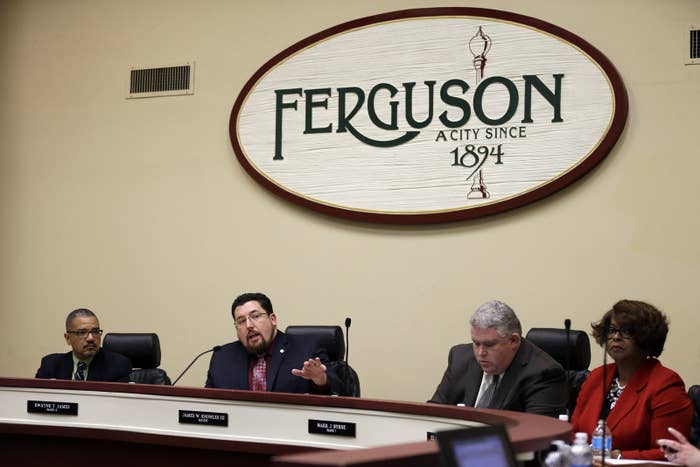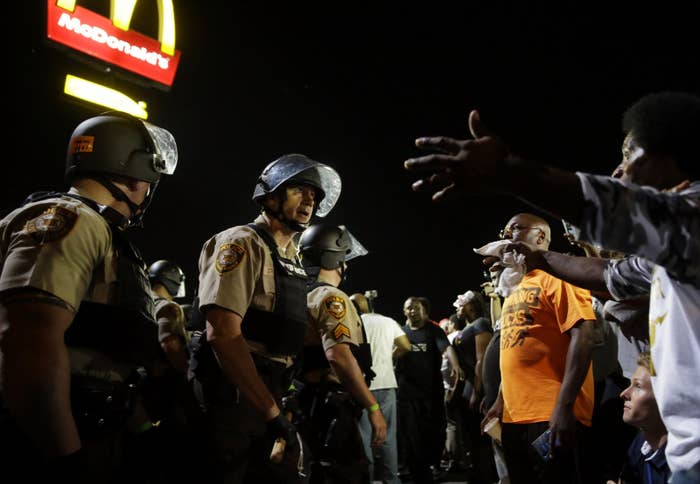
Leaders in Ferguson, Missouri, on Tuesday approved overhauling the city's police department and court system to address claims that they had engaged in a pattern of discrimination against black residents.
The agreement brought an end to a lawsuit that had been filed by the Department of Justice aimed at forcing the city to implement the recommendations.
Ferguson became the focal point in the national debate on police use-of-force against black people after officers fatally shot 18-year-old Michael Brown in 2014, sparking days of protests and a federal investigation. The shooting was determined to be justified, but the investigation found a pattern of racial bias and abuse in its justice system, where police and courts focused on raising revenue through fees imposed on the city's mostly black residents.
"We understand the importance of today's vote," Ferguson Mayor James Knowles III said in a statement. "Our number one goal is to not only move the city but the entire region forward."
The St. Louis Post Dispatch reported cheers broke out in the council chambers as the council approved the 131-page decree, the result of an agreement with the Department of Justice in January. City leaders, however, later balked at some of its provisions, including higher police salaries, citing concerns about how much they would cost to implement.

The Justice Department sued the city in response, with U.S. Attorney General saying the residents of Ferguson "should not have to wait any longer" for changes.
After getting assurances that their cost concerns would be addressed, city council members voted unanimously to give the agreement final approval.
The city and Department of Justice filed a joint motion in federal court Thursday, resolving the issue.
"The filing of this agreement marks the beginning of a process that the citizens of Ferguson have long awaited," U.S. Attorney General Loretta Lynch said in a statement.
Under the agreement, the city would commit to include more input from a diverse set of community members, require body cameras, review its use-of-force policies, and require new psychological screening, background checks, and reviews for new police hires.
"We committed during our negotiations to cooperatively address concerns about costs or other challenges that may arise during the implementation process, and our commitment to that cooperation has not changed," Vanita Gupta, Assistant Attorney General wrote to the city last week.
